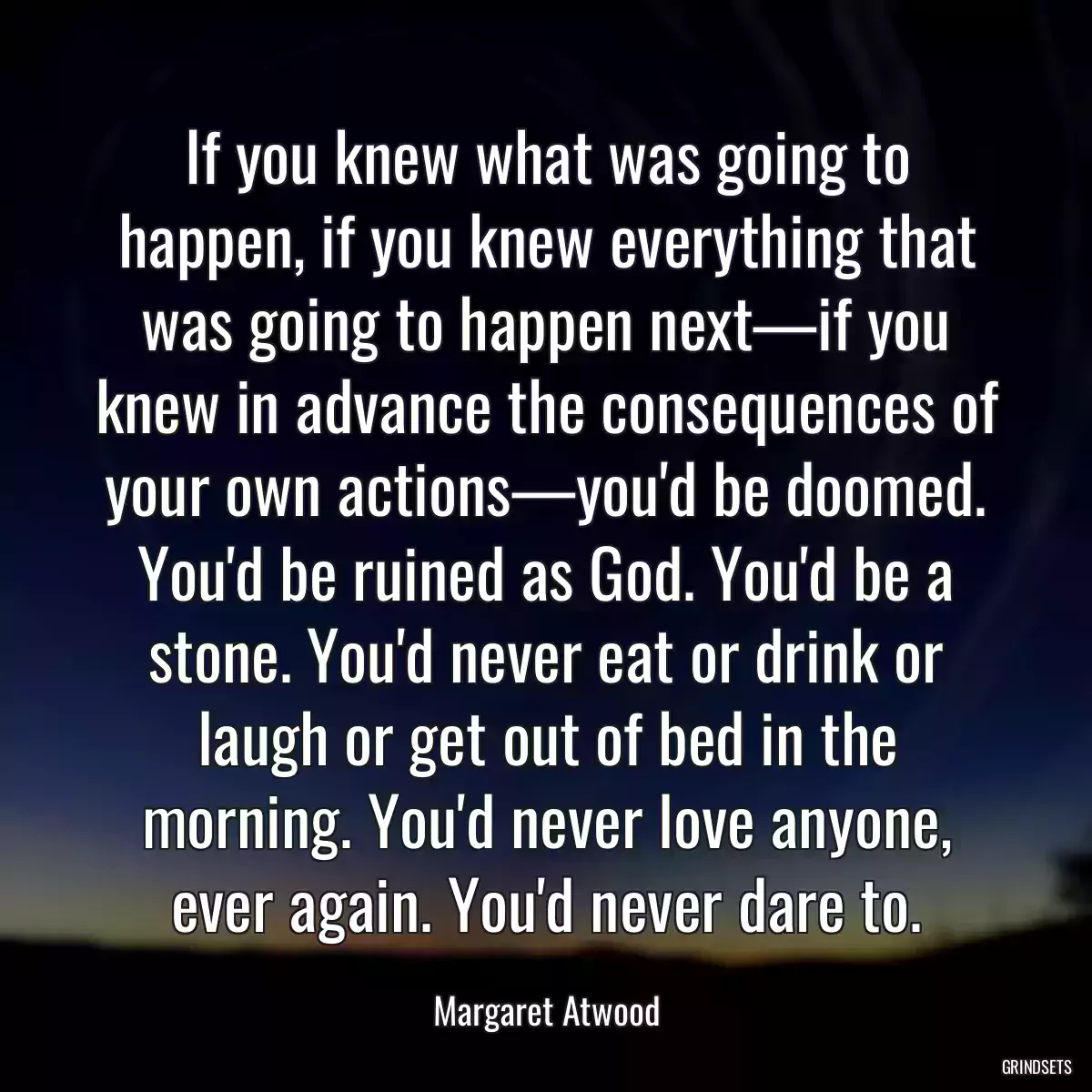
If you knew what was going to happen, if you knew everything that was going to happen next—if you knew in advance the consequences of your own actions—you'd be doomed. You'd be ruined as God. You'd be a stone. You'd never eat or drink or laugh or get out of bed in the morning. You'd never love anyone, ever again. You'd never dare to.